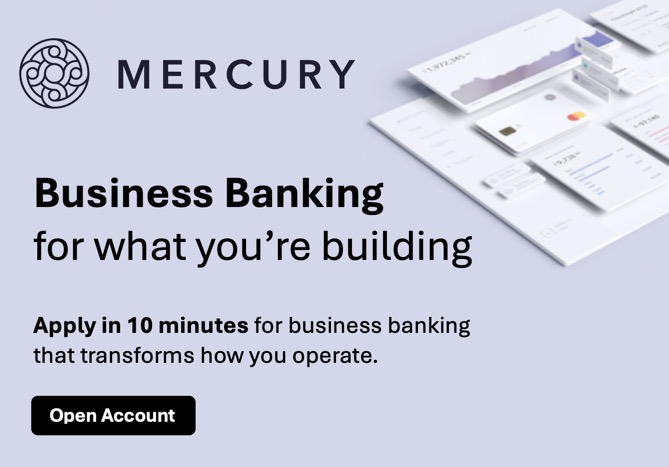
As a small business owner, choosing the right banking partner comes with tradeoffs. Do you want to be able to walk into a branch and talk to someone if the you-know-what hits the fan? Or do you want to interact with state-of-the-art digital tools that might prevent all that mess in the first place? Or should you go hybrid with accounts of both types?
With the rise of digital banks (also known as neobanks, challenger banks, or fintechs), you now have more options. Let’s explore their advantages and disadvantages to help you make an informed decision.
Digital Banks: The New Wave
Pros:
Enhanced Digital Experience
* More digital tools for conversing with customer service
* Intuitive mobile and web interfaces
* Real-time notifications and spending insights
Quick Setup
* Fast online application process
* Digital identity verification
* No need to visit physical branches
* Rapid account approval (sometimes within minutes)
Innovation and Features (see previous post for more examples)
* Advanced API integrations for e-commerce
* Built-in invoicing tools
* Virtual card creation
* Comprehensive payment solution
* Easy integration with accounting software
* Digital receipt capture and expense tracking
Lower Fees
* Minimal or no monthly maintenance fees
* Reduced international transfer costs (fees + FX spread)
* No minimum balance requirements
Cons:
Less Trust
* Most digital banks are less than 10 years old
* Banking services are provided by third parties
* Deposit insurance offered via these same third parties
* No option to visit a physical office to resolve a major issue
Limited Personal Relationship
* No dedicated banker or account manager
* Customer service primarily through chat or phone
* Less personalized financial advice
Fewer Credit Options
* May not offer commercial lending
* May not offer lines of credit
Cash Handling Limitations
* No physical locations for cash deposits
* May rely on third-party networks for ATM access
Traditional Commercial Banks: The Established Players
Pros:
Personal Relationships
* Face-to-face interactions with bank representatives
* Dedicated business banker
* Personalized financial guidance
* Direct help with complex transactions
Comprehensive Services
* Full range of financial products
* Business loans and credit lines
* Merchant services
* Treasury management solutions
Physical Infrastructure
* Branch network for cash deposits
* Safe deposit boxes
* Notary services
* Local presence in your community
Established Trust
* Long-standing reputation
* Proven security track record
* Traditional fraud protection
* FDIC insurance
Cons:
Higher Costs
* Monthly maintenance fees
* Transaction fees
* Higher minimum balance requirements
* More expensive wire transfers
Older Technology
* Can have outdated online interfaces
* May have slower adoption of new features
* Less seamless software integration
* Mobile apps with older user interfaces
Time-Consuming Processes
* May have longer account opening procedures
* May require in-person visits
* May have paper-based documentation
* May have slower transaction processing
Making Your Decision
Consider your business’s specific needs:
Choose digital only if you:
* Run a primarily digital business
* Value modern technology and automation
* Have minimal cash handling needs
* Want to minimize banking costs
Choose a traditional only if you:
* Deal with significant cash transactions
* Need complex financial products
* Value face-to-face relationships
* Require comprehensive business services
Choose both if you:
* Have complicated financial needs that justify managing two banking relationships
* Have large enough balances that you want to split them for more deposit insurance
* Want to play two suppliers against each other for better terms



